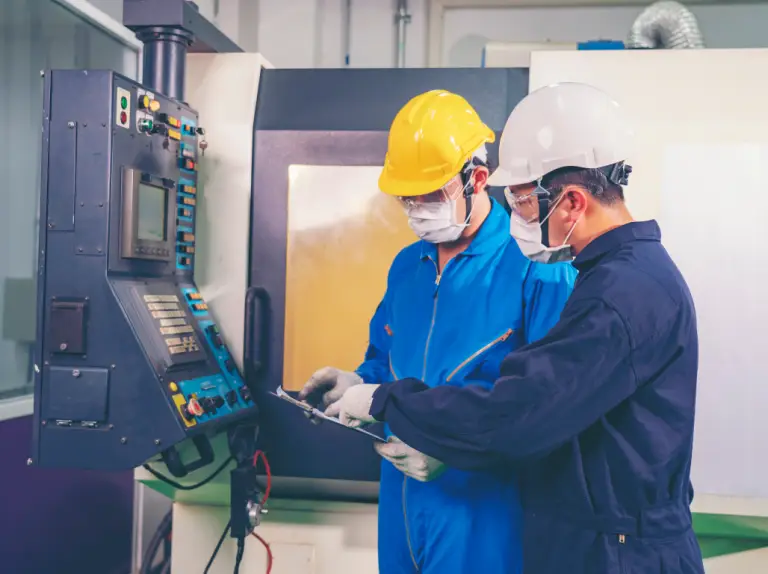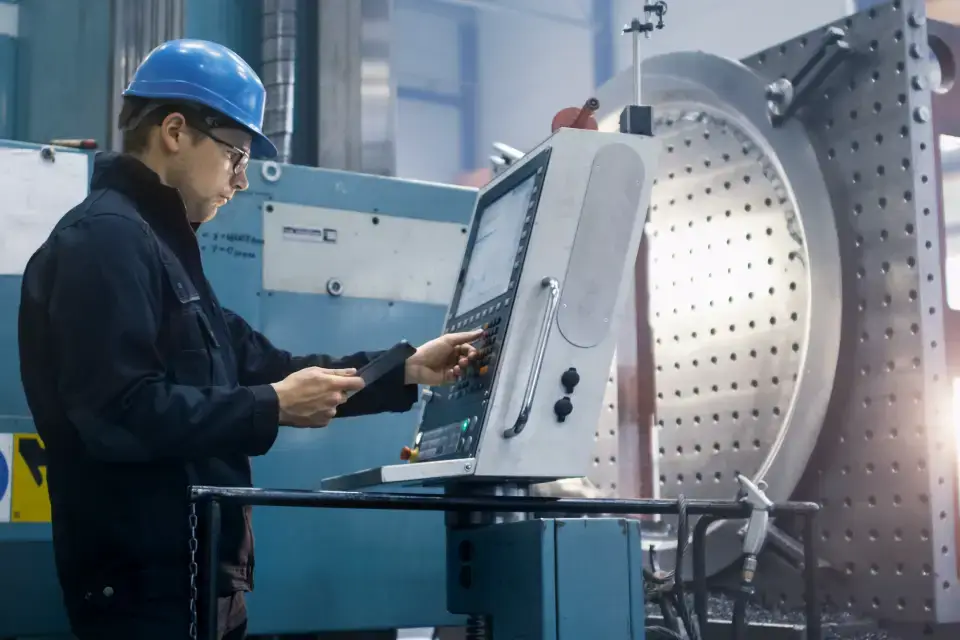Introduction
The manufacturing industry strives for precision, consistency, and accuracy, and that’s when computer numerical control (CNC) machines come into play. Governed by programmable software, CNC machines have revolutionized manufacturing by achieving tasks that were once impossible through manual methods. However, despite their automation, CNC machines still require skilled operators. Becoming a CNC operator demands a keen eye for detail, knowledge of mathematics, an understanding of mechanical design, and the ability to interpret technical drawings to ensure optimal performance. Each CNC machine is unique in function, construction, and operation, necessitating specialized knowledge of hardware to harness its full potential.
What it Takes to be a CNC Operator
Becoming a CNC operator requires an understanding of how CNC machines work and mathematical skills for performing calculations and measurements. CNC operators are responsible for setting up, loading materials, maintaining, and operating these machines for tasks like cutting, shaping, and drilling. The materials used include metal, wood, or plastic. They also monitor the machining process to ensure the accuracy and quality of the finished product. On-the-job training is essential for gaining experience, and obtaining certifications or additional training can improve career prospects and promote advancement in the field.
A CNC Operator’s Typical Day
Adaptability is crucial for CNC operators, who may engage in a variety of tasks throughout the day, such as moving parts, packaging completed parts, performing changeovers, collaborating with team members, or meeting with customers. A typical day for a CNC operator in the metalworking industry begins with donning safety gear and reporting to their work center. They gather supplies and discuss any machine or part quality issues with the previous shift operator. Their primary task involves different machining operations, such as cutting, turning, drilling, milling, grinding, or deburring to create a part according to the design. After machining operations, they conduct in-process audits using various measuring tools and a final inspection on a Coordinate Measuring Machine (CMM) for dimensional accuracy. They may collaborate with colleagues to plan tool changes and audits for efficiency. Throughout the day, they monitor the tooling used on each part to ensure proper performance, responding to machine alarms indicating tool life expiration. At the end of the shift, they ensure a smooth transition by sharing insights with the next operator, recording production data, and tidying up the work area.

Compensations for CNC Operator
The compensation and wages can vary depending on factors such as location, experience, industry, and the specific responsibilities of the role. Based on data from talent.com, entry-level positions typically offer salaries starting at $33,150 per year, while more experienced workers can earn up to $48,897 per year. The transportation manufacturing industry offers the lowest average salaries, averaging $39,030. Conversely, the petroleum industry boasts the highest average CNC salaries, reaching $60,080.
Scope of CNC Operators
As technology advances, the scope of CNC operators also evolves. To remain competitive in their field, CNC operators must stay updated on industry trends. There are various types of CNC operators, each specializing in different areas of CNC machining. For example, a lathe operator specializes in operating CNC lathes, which are used for cylindrical machining operations such as turning and facing. On the other hand, a waterjet cutter operator operates CNC waterjet cutting machines, which use a high-pressure stream of water mixed with abrasive particles to cut through various materials.

Conclusion
Individuals with backgrounds in mechanical engineering, manufacturing, or vocational training in machining pursue careers as CNC operators. Moreover, those who enjoy working with machinery, have good attention to detail and are willing to undergo training and gain experience in CNC machining can also become successful CNC operators.



